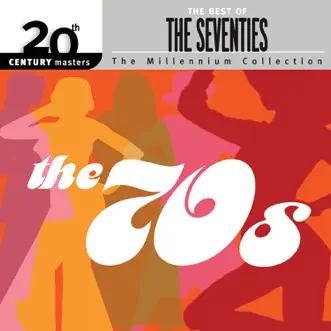American Pie by Don Mclean Song Info
"American Pie" is a folk rock song by singer-songwriter Don McLean. Recorded and released on the American Pie album in 1971, the single was a number-one U.S. hit for four weeks in 1972. A re-release in 1991 did not chart in the U.S., but reached number 12 in the UK. The song is an abstract story surrounding "The Day the Music Died" -- the 1959 plane crash that killed Buddy Holly, Ritchie Valens and The Big Bopper (Giles Perry Richardson, Jr.). The importance of "American Pie" to America's musical and cultural heritage was recognized by the Songs of the Century education project which listed the song as the number five song of the twentieth century. Some Top 40 stations initially played only side two of the single, but the song's popularity eventually forced stations to play the entire piece. Background and interpretation: The song's lyrics are the subject of much curiosity. Although McLean dedicated the American Pie album to Buddy Holly, none of the musicians in the plane crash are identified by name in the song itself. When asked what "American Pie" meant, McLean replied, "It means I never have to work again". Later, he more seriously stated "You will find many interpretations of my lyrics but none of them by me... sorry to leave you all on your own like this but long ago I realized that songwriters should make their statements and move on, maintaining a dignified silence."[2] McLean has generally avoided responding to direct questions about the song lyrics ("They’re beyond analysis. They’re poetry.") except to acknowledge that he did first learn about Buddy Holly's death while folding newspapers for his paper route on the morning of February 3, 1959 (the line "February made me shiver/with every paper I'd deliver"). He also stated in an editorial published on the 50th anniversary of the crash in 2009 that writing the first verse of the song exorcised his long-running grief over Holly's death. As an example of complexities in interpretation, some have thought that the line "When Lenin read a book on Marx " refers to Das Kapital, (written by Karl Marx) which Lenin read and then contributed to the communist Marxist theory. However, this interpretation is doubtful, since the song is about the evolution of Rock 'n' Roll. The line is followed by the reference to the "quartet" (The Beatles) practising in the park, so it's far more likely that this is a pun on John Lennon's name and his fascination with Marxist thinking. Many others have similarly interpreted the line as a reference to Lennon, this time with Groucho Marx, who were photographically paired together on the 1969 Firesign Theater album (cover), How Can You Be in Two Places at Once When You're Not Anywhere at All which was issued two years earlier than the "Pie". Many have have attempted to provide a definitive interpretation; at the time of the song's original release in late 1971, many American AM & FM rock radio stations released printed interpretations and some devoted entire shows discussing and debating the song's lyrics, resulting in both controversy and intense listener interest in the song. Some examples are the real-world identities of the "Jester", "King and Queen", "Satan", "Girl Who Sang the Blues" and other characters referenced in the verses. Speculation ranges from Bob Dylan, Elvis, Janis Joplin, and Mick Jagger. What can be said with some confidence, even if we cannot provide a definitive interpretation of every detail, is that the song chronicles what McLean considered to be the death of American music over a 10 year period from the death of Buddy Holly to the infamous 1969 Rolling Stones concert where the Hells Angels stabbed an 18 year-old man Meredith Hunter to death. This would explain the satanic imagery and the references to Rolling Stones lyrics near the end of the song. If this is true, then the song laments the 10 year death of the innocence of American rock n' roll, beginning with the death of Buddy Holly and ending with the death of Meredith Hunter.




